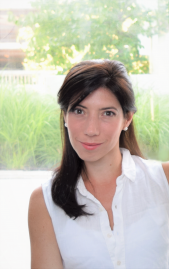
Maria Eugenia Inda-Webb is a Pew Postdoctoral Fellow working in the Synthetic Biology Center at MIT. She is building biosensors to diagnose and treat inflammatory disorders in the gut, such as inflammatory bowel disease and celiac disease. Specifically, she is equipping the bacteria dwelling in the intestines with sensors to recognize the molecular markers of inflammation and command them as sentinels to patrol the gut and secrete therapeutic molecules in situ. Maria started and leads the MIT Microbiome Journal Club with the support of the Center for Microbiome Informatics and Therapeutics (CMIT) at MIT/MGH since 2019. She is the 2023 ASM (American Society for Microbiology) Award for Early Career Environmental Research, 2020 Langer Fellow for Innovation and Entrepreneurial Excellence - American Institute of Chemical Engineers (AIChE), Topic Editor of Biosensors - MDPI (2020) and Engineered Living Materials (Life – MDPI, 2022), 2018 MIT IMPACT Fellow, the recipient of the EMBO/EMBL SynBio-poster award (Heidelberg, 2015) and the ASM's first Agar Art contest award (2015). Besides, Maria is thrilled to serve as an MIT-Comm Lab advisor using her prowess to help students show the value of their ideas and push their scientific career forward. Outside her research, she loves hiking with her husband and capturing the beauty of everyday life with her Nikon D3400 camera.
